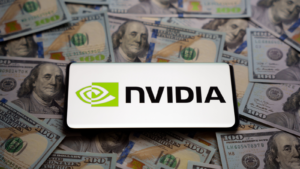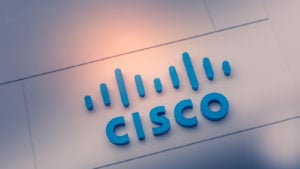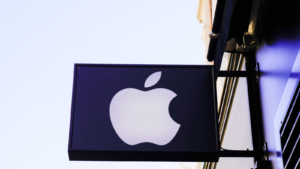Generally speaking, investors buy tech stocks for their exposure to growth and not dividends. When the tech sector gets hot, it grows very quickly producing rapid returns. 2023 was a prime example of that broad truth. Investors will continue to buy tech stocks primarily for that exposure.
Yet, text stocks also provide the stability of dividend income in some cases. Most tech firms direct cash toward growth prospects primarily. More established firms also choose to direct the sum of their cash back to investors in the form of dividends and share buybacks.
Those are the firms we will be discussing below. These firms tend to pay lower yields but there are also cases in which yields exceed 3% or more. Let’s take a look at these tech firms and their dividends.
Nvidia (NVDA)

Investors who do their homework on Nvidia (NASDAQ:NVDA) stock will discover that it actually pays a dividend. In fact, the company instituted its dividend program all the way back in 2013. Nvidia has never reduced its dividend payment during that time.
While its yield is very low at 0.02%, it is clearly very reliable overall. To be clear, Nvidia is not highly focused on its dividend program as an enticement to investors: the dividend has only grown by 2% on average over the past five years.
In any case, investors are interested in Nvidia for its growth prospects. The small dividend is something of a novelty but provides a slight amount of income nonetheless. Investors will buy NVDA shares at the moment primarily because it continues to shine. Its fourth quarter earnings beat was yet another strong signal from the world’s leading chip maker. Buy Nvidia because it has the potential to move as high as $1,300 but also consider that dividend which will continue to grow over time.
Cisco Systems (CSCO)

Cisco Systems (NASDAQ:CSCO) Is one of the better known tech dividend stocks. The internet networking firm pays a dividend yielding more than 3% and which has not been reduced for more than a dozen years.
That dividend looks to add an additional $1.60 to each share of CSCO stock in 2024. Consider that in light of the fact that analysts believe share prices could rise above $76 this year. That would put the total return at $78. Cisco Systems shares currently trade for approximately $49. There is legitimate potential for investors and that dividend yield is critical.
Even if those share prices don’t rise that high, the consensus is that they will rise above $57. In that case, the $1.60 in dividends becomes even more attractive.
One of the primary reasons Wall Street is bullish on Cisco Systems is the simple fact that IP protocol demand should continue to rise in light of the continued emergence of AI. By the shares for their exposure to that potential growth and rest easy knowing that they provide income.
Microsoft (MSFT)

There is no doubt that Microsoft (NASDAQ:MSFT) stock is a high upside investment. Despite its meteoric growth over the past year there is likely more ahead. In fact, analysts believe it could rise as high as $600 this year. That would represent roughly 50% growth above its current price.
That potential is pushed marginally higher by Microsoft’s dividend which yields 0.75%. Microsoft pays $3 in annual dividends. In total, MSFT shares could rise as high as $603. The other thing to note is that Microsoft’s dividend is rock solid. The company has never reduced the dividend for the entirety of its existence. That’s probably not much of a surprise to readers: Microsoft is a cash rich firm that instituted the dividend as a bonus in reality. The likelihood that Microsoft reduces the payout is effectively zero.
The argument in favor of investing in Microsoft as a dividend stock is largely the same as that for the other tech giants with dividends: buy them for the growth potential and consider the dividend as a nice to have novelty.
Skyworks Solutions (SWKS)

Skyworks Solutions (NASDAQ:SWKS) provides semiconductor products to firms around the world. Its stock is highly regarded and widely expected to grow from its current price of $103. The consensus opinion is that those shares will rise in value to $115 and potentially move as high as $140.
The company’s dividend adds an additional $2.72 to its potential returns. Should Skyworks Solutions shares reach the consensus price of $115, that equates to a difference between 11.65% returns and 14.3%. Investors can easily understand the value of a higher yield dividend such as that which Skyworks Solutions provides. The 2.63% yield may not sound particularly impressive but the figures show that it makes a large difference overall.
The company last reduced that dividend in 2014. However, the semi-annual dividend has been in existence since 1980. Higher yield dividends require more cash and are thus more likely to be reduced in leaner times. That doesn’t seem to be the case at the moment and Skyworks Solutions continues to be an excellent choice among tech dividend stocks.
Meta Platforms (META)

Meta Platforms (NASDAQ:META) Is another of the leading tech firms that also pays a dividend. In fact, among the best known Silicon Valley firms, only Google (NASDAQ:GOOG,NASDAQ:GOOGL) lacks a dividend entirely.
Until recently, Meta Platforms was similar to Google and did not pay any dividend. That changed on February 1st when the company reported 4th quarter earnings and initiated its first ever dividend of 50 cents.
The decision coincided with the company’s 20th anniversary. It also followed after the company beat 4th quarter expectations on Wall Street. Advertising revenues have rebounded as the unexpectedly strong economy continues to hum along.
While the move was welcomed by Wall Street, it is also curious given the fact that META needs all the cash it can get at the moment. The company is trying to satisfy the dual beasts of AI growth and its continued losses in its metaverse segment. Again, it is welcome none-the-less and makes META shares currently among dividend paying tech firms worth investing in.
AAPL (AAPL)

Would you believe that AAPL (NASDAQ:AAPL) has been paying a dividend since 1987? It has, but there was a long pause during that period in which it paid no dividends at all. The company paused its dividend payment between late 1995 and the summer of 2012. That was the last time that the company reduced its dividend payment which currently yields 0.5%.
The decision heralded the beginning of a new era as Apple transitioned from the leadership of Steve Jobs into that of Tim Cook. The rationale for the reintroduction of the dividend was that it would attract liquidity in the form of institutional investment thus increasing share prices. The history of Apple’s share growth over the past decade makes it difficult to argue against the decision. AAPL shares have returned more than 27% on average annually over the past decade. That was enough to 11x an investment made at the beginning of that period.
Qualcomm (QCOM)

Last but certainly not least on this list of dividend tech stocks is Qualcomm (NASDAQ:QCOM). The company provides investors with $3.20 annually in dividends per share owned. That equates to a yield of more than 2% which is relatively high in the tech world. The general thinking is that that cash would be better served pursuing growth prospects and thus yields of say 5%, for example, are exceedingly rare.
It’s fair to characterize Qualcomm’s dividend as being stable and relatively quickly growing. It was last reduced in 2003 and has grown at an annual rate of 5.3% over the last five years.
While those points of attraction are logical reasons to buy Qualcomm, there are others to consider. Qualcomm is well diversified and exposed to current growth trends. It is one of the better positioned tech firms in relation to the confluence of AI and phones. The company has released updated AI features on its flagship phones. Investors remain very curious to see how the application of advanced AI to phones will drive revenues. Smartphone revenues have been extraordinarily high as the world remains glued to their handsets. Qualcomm is a major provider to Apple which is a major catalyst to consider overall.
On the date of publication, Alex Sirois did not have (either directly or indirectly) any positions in the securities mentioned in this article. The opinions expressed in this article are those of the writer, subject to the InvestorPlace.com Publishing Guidelines.
